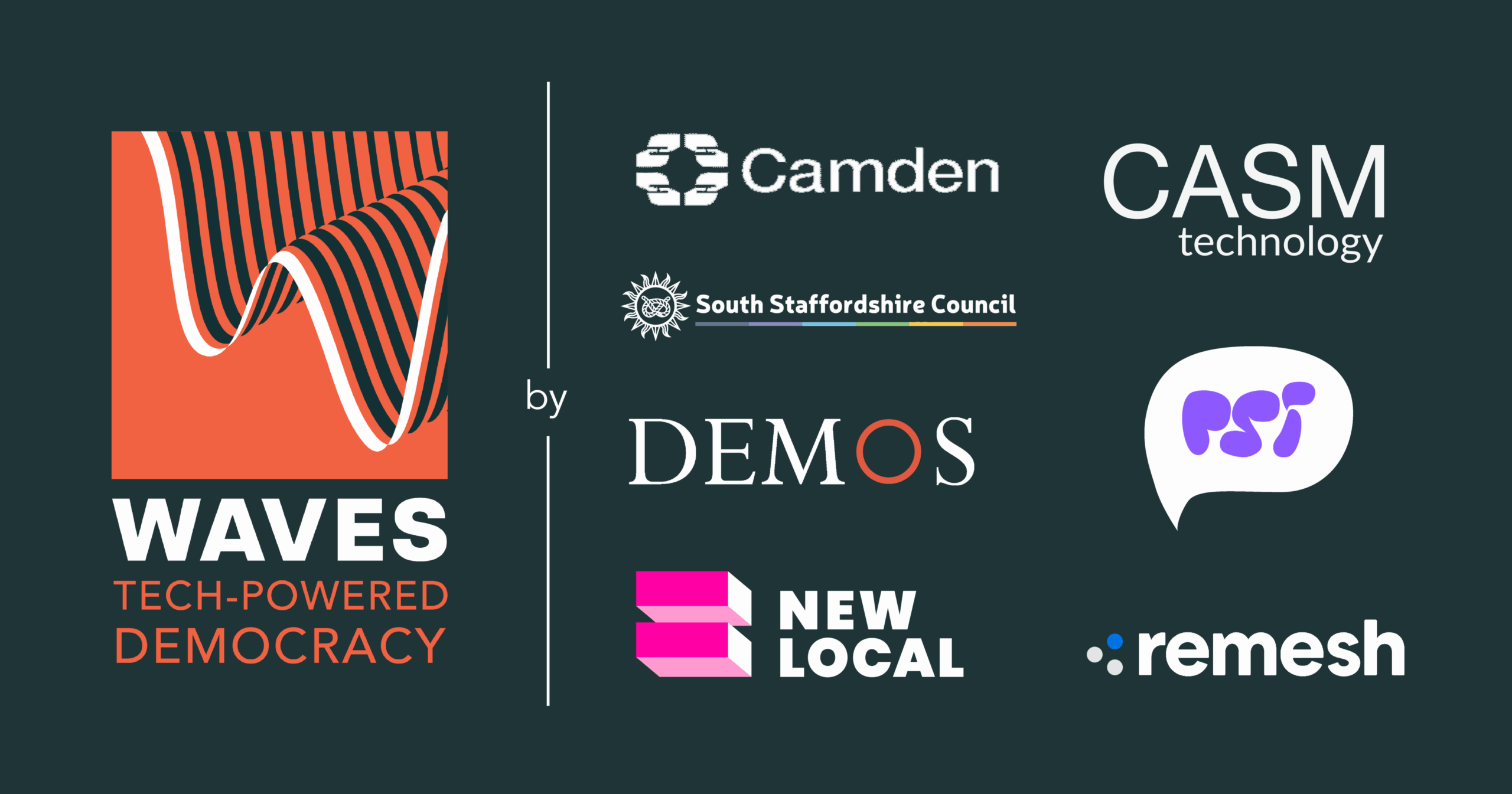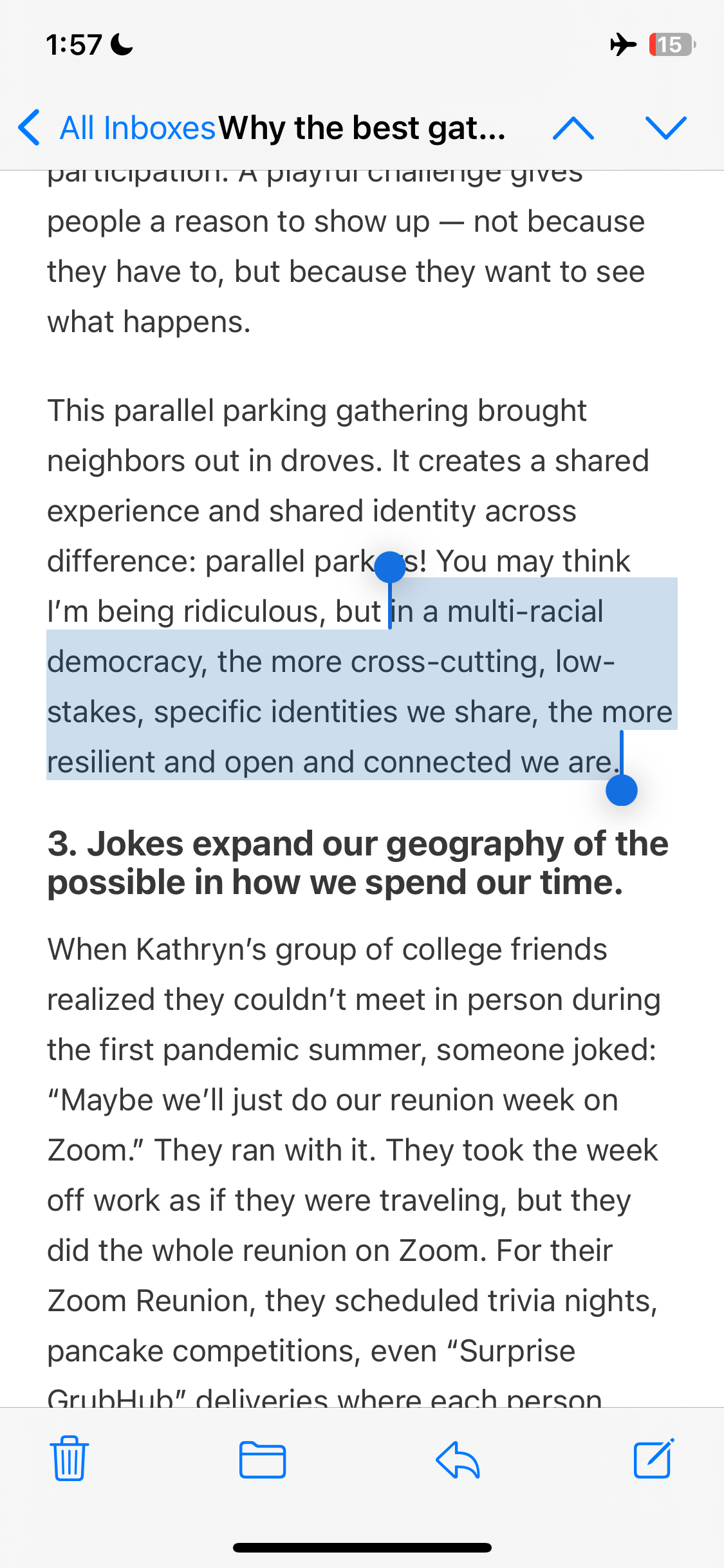Democracy, peace, dialogue & deliberation
Exploring ways to discuss, debate, dialogue, deliberate, and generally understand and engage with different perspectives
Democracy, peace, dialogue & deliberation
Exploring ways to discuss, debate, dialogue, deliberate, and generally understand and engage with different perspectives

Waves: Tech-Powered Democracy - “Waves is a new digital deliberation process and tool that uses AI to enable participation both at scale and in depth. Waves integrates existing digital tools – Remesh and PSI – with new open-source technology, developed by CASM Technology, to simplify and scale end-to-end deliberation for local governments.”


